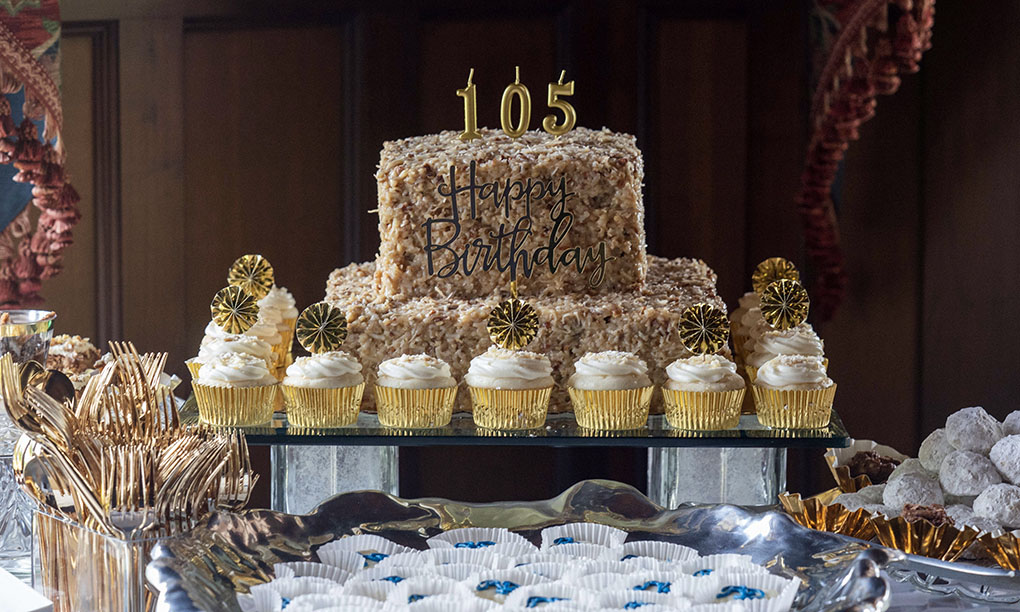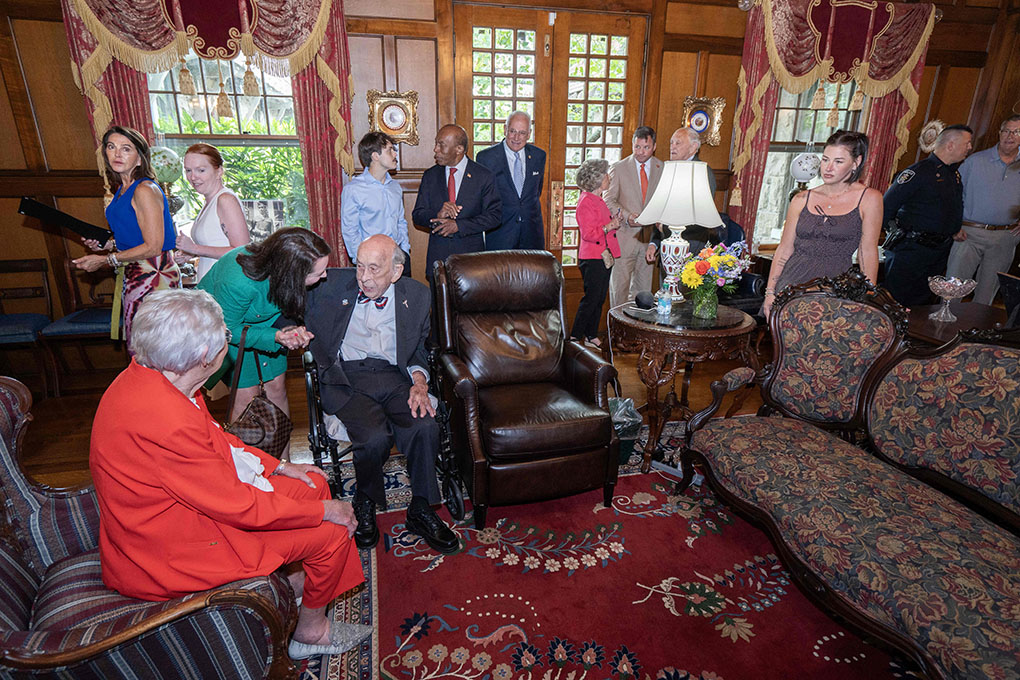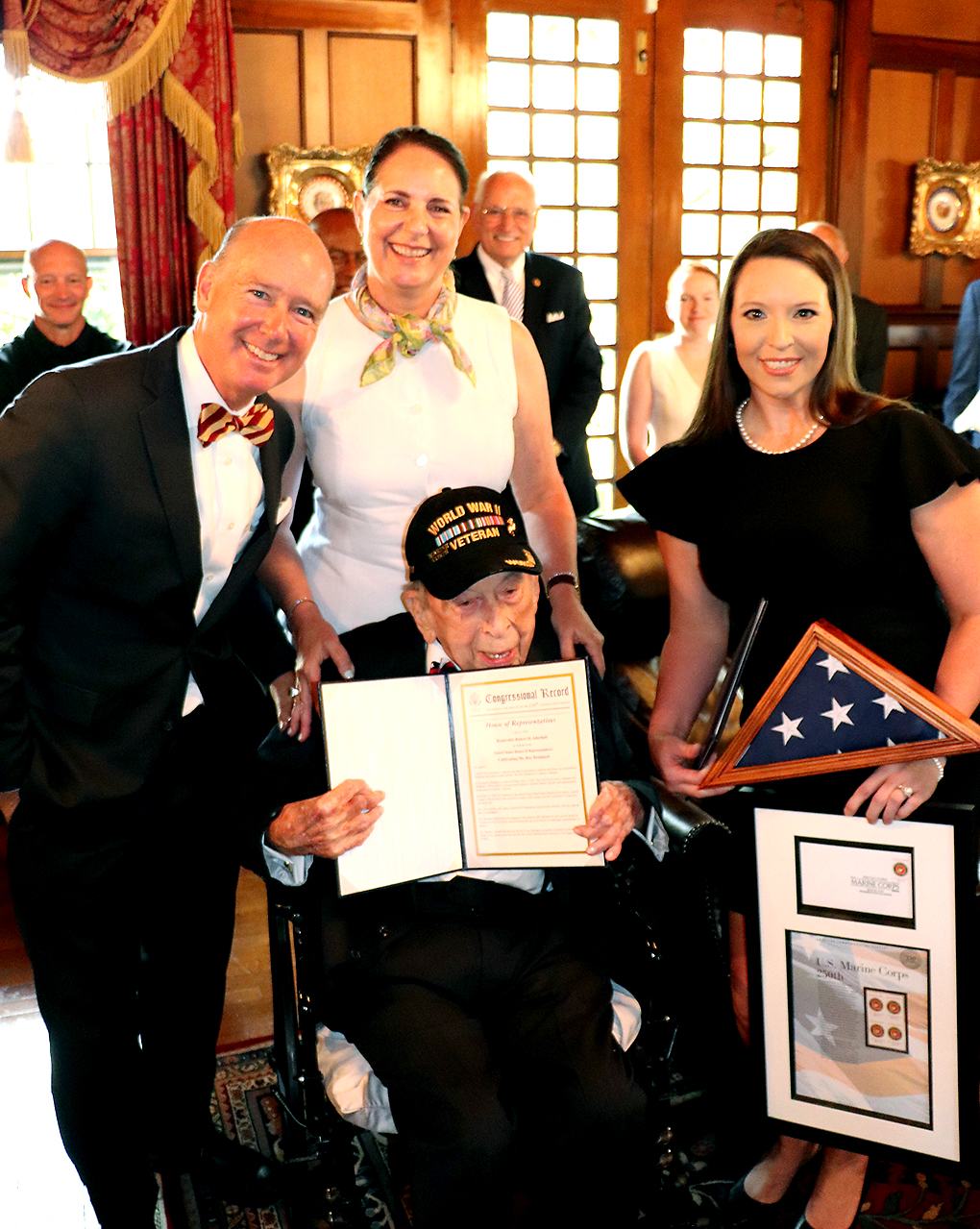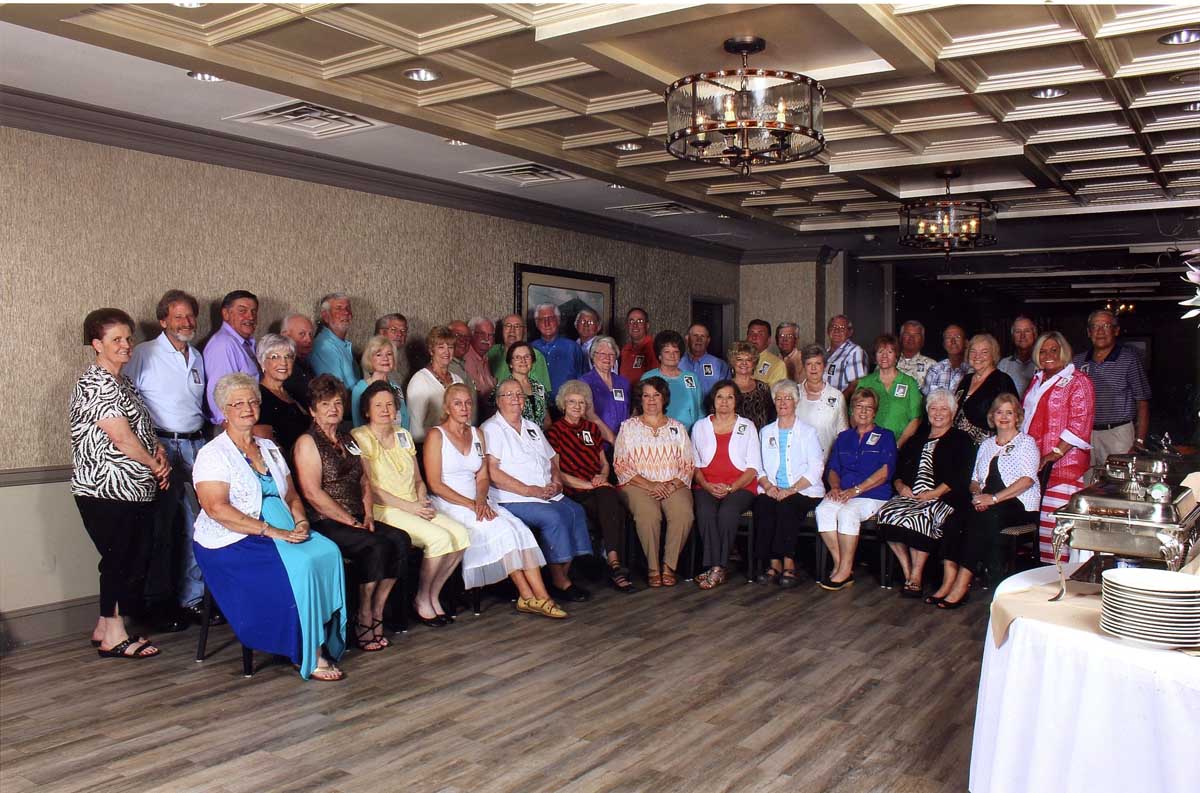Roy Drinkard, local businessman and oldest living U.S. Marine, celebrates 105th birthday
Published 7:28 pm Friday, July 11, 2025




Cullman businessman Roy Drinkard celebrated his 105th birthday on Friday, July 11, surrounded by friends, family and well-wishers.
Among the many congratulating Drinkard was Gov. Kay Ivey who presented Drinkard with a commendation honoring his birthday during her visit.
Several local and state elected officials, including Senators Katie Britt and Tommy Tuberville and Congressman Robert Aderholt, attended Drinkard’s birthday party. Aderholt presented the oldest living United States Marine, with a flag that had flown over the U.S. Capitol.
Trending
“Caroline and I are honored to stand beside Mr. Roy Drinkard’s family and friends today to honor a veteran who bravely served in World War II as a United States Marine,” Aderholt said in a press release. “At 105-years-old, Mr. Roy Drinkard continues to show what it means to live with courage, commitment and purpose.”
“Roy Drinkard’s commitment to leadership is evident in his continued involvement in business and his service on the Board of Trustees at Troy University, a testament that age is no barrier to leadership,” Aderholt said.
Drinkard was one of the original “Flying Fifty” group of local business leaders flew to Florida to recruit one of the area’s first postwar factories – a King Edward Cigar plant. It began a “synergy,” as Drinkard called it when speaking to The Times in 2019, that saw new industries and local training initiatives working with each other to keep up with the pace of the Cullman area’s growth.
“One of the most expensive things to ‘own’ is a child: We bring them up, we educate them – and then they leave,” he told The Times. “That’s true not just of Cullman, but throughout most of Alabama. When we invest in a child like that, and then they move away to find high-value work, we’re not getting the value; the commercial value, of that education back. We need to do everything we can, on both the business and the education side of things, to change that.
“We’ve found that not everybody wants to go to college. They may want to acquire some technical skills – and this is really a challenge, not only with our present educators, but with employers all around. We need the jobs that will make people want to move here, but you’ve got to build housing for them. And as much as we need new people to move here, we also need people not to move away.”









